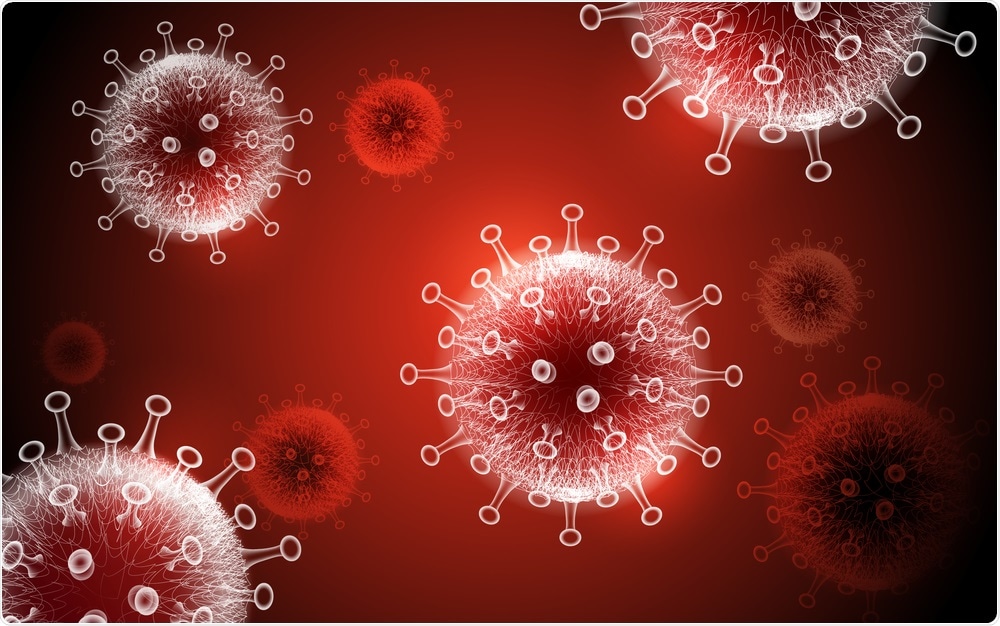Scientists recently discovered metabolites—intermediate or end products of metabolism—in the human microbiome that hinders COVID-19 infection in cell-based models of the virus. The observations were published in the mSphere journal—an open-access journal of the American Society for Microbiology.

Image Credit: CKA/Shutterstock.com
This study is another example of the wealth of knowledge that can be got by analyzing the human microbiome—the collection of microorganisms, fungi, bacteria, and viruses that thrive on and inside the human body. The observations might also help in the generation of novel therapeutics that can combat COVID-19 infections.
We have found that bacteria that grow on and in you make specific molecules that can inhibit, at least in a laboratory setting, the cell-based viral infection of SARS-CoV-2, and the molecules appear to do that by a number of different mechanisms.”
Sean Brady PhD, Professor and Head, Laboratory of Genetically Encoded Small Molecules, Rockefeller University
Sean Brady is the principal investigator of the study.
Brady remarked that the COVID-19 pandemic has emphasized the need to recognize more antiviral small molecules to complement already existing therapies. Even though much evidences are indicating that metabolites generated by the human microbiome have distinct biological activities impacting the human host, there is considerably less information on the antiviral properties of the metabolites.
In the current study, Brady and coworkers employed a cell-based SARS-CoV-2 infection assay to screen metabolites from a sample of bacteria taken from the human microbiome. They found three bacterial metabolites which are capable of hindering SARS-CoV-2 infection—tryptamine, adenosine analog, and a disubstituted pyrazine.
The discovered molecules showed structural similarities to synthetic drugs that were analyzed for the treatment of COVID-19.
It was intriguing that of all the chemistries available, the metabolites we uncovered from the microbiome all bore similarities to clinically-relevant antivirals.”
Frank Piscotta PhD, Study Lead Author and Post-Doc, Laboratory of Genetically Encoded Small Molecules, Rockefeller University
The scientists remark that these molecules can pave the way for the production of new antivirals. Additionally, scientists could deliver the antiviral-producing bacteria as a therapeutic intervention.
The scientists state that they intend to investigate the mechanisms by which the metabolites act and if the bacteria generating these molecules have any impact during the colonization of an animal. Once the researchers could get their hands on more detailed information, they also intend to analyze if the absence or presence of these antiviral-producing bacteria in humans can be associated with the severity of viral infection.
Our discovery of structurally diverse metabolites with anti-SARS-CoV-2 activity from screening a small fraction of the bacteria reported to be associated with the human microbiome suggests that continued exploration of phylogenetically diverse human-associated bacteria is likely to uncover additional small molecules that inhibit SARS-CoV-2 as well as other viral infections.”
Sean Brady PhD, Professor and Head, Laboratory of Genetically Encoded Small Molecules, Rockefeller University
Brady remarks that this research is the first of its kind to demonstrate that molecules produced by the human microbiome can hinder viral infections, specifically of coronaviruses like SARS-CoV-2.
Source:
Journal reference:
Piscotta, F. J., et al. (2021) Metabolites with SARS-CoV-2 Inhibitory Activity Identified from Human Microbiome Commensals. mSphere. doi.org/10.1128/mSphere.00711-21.